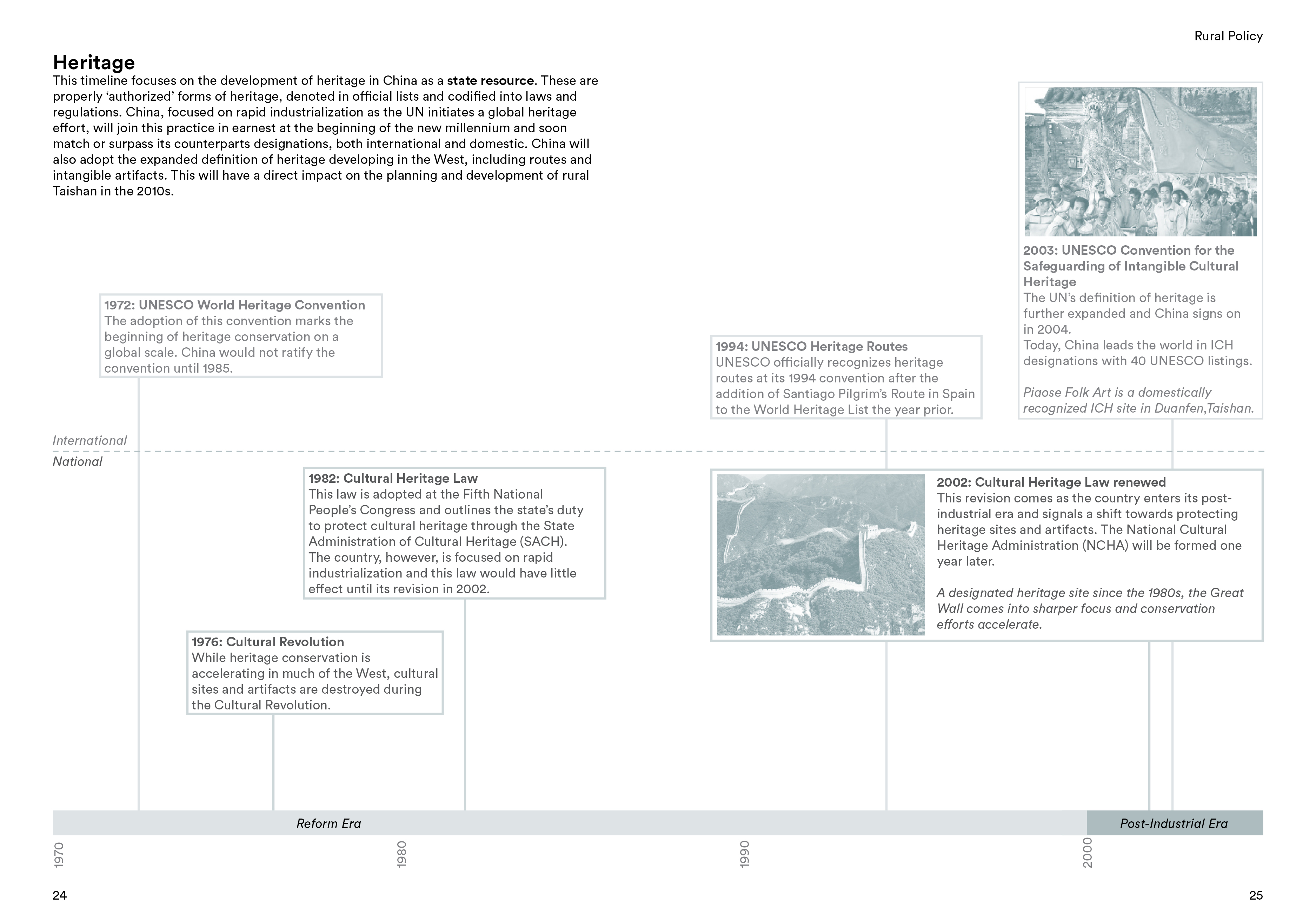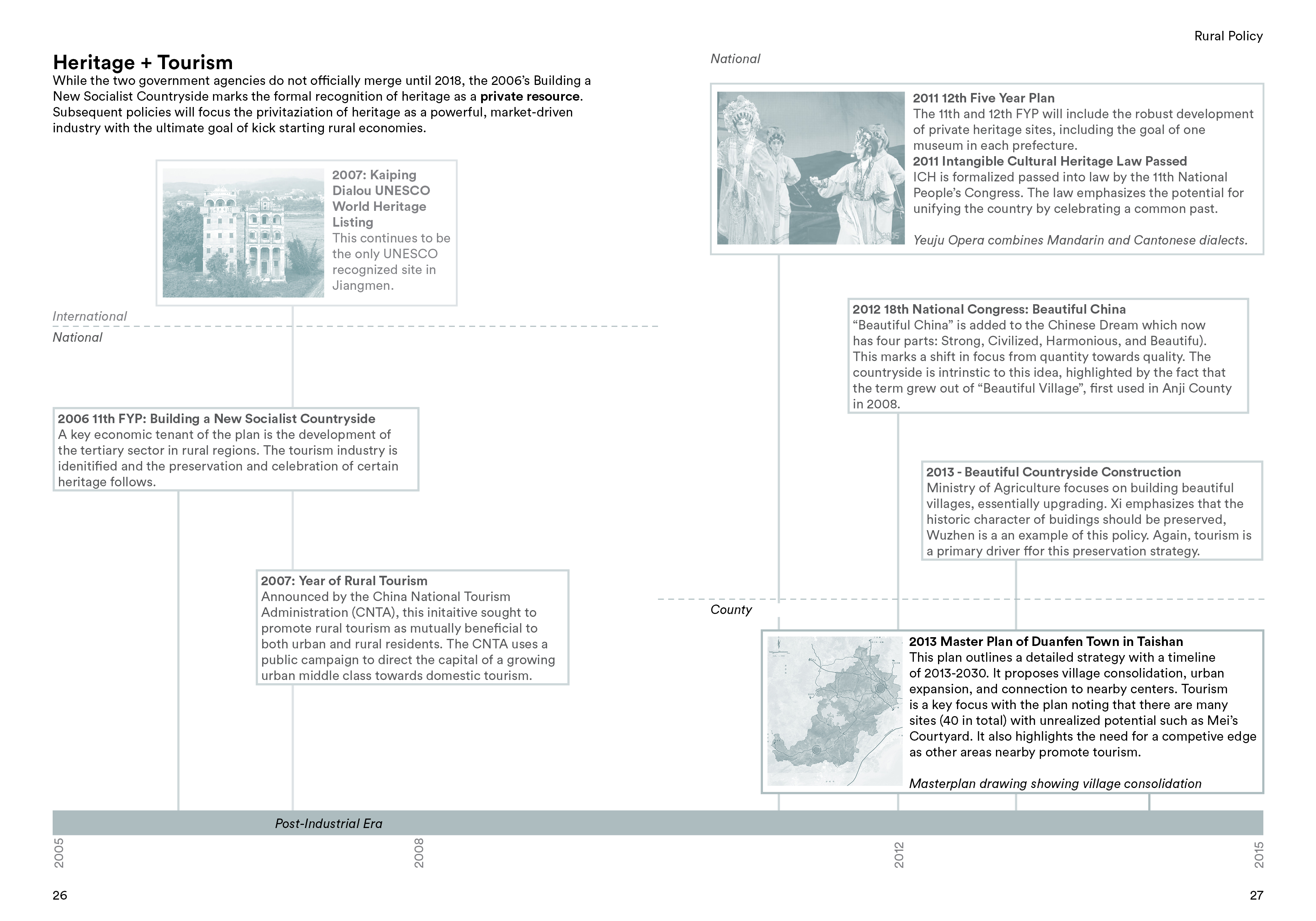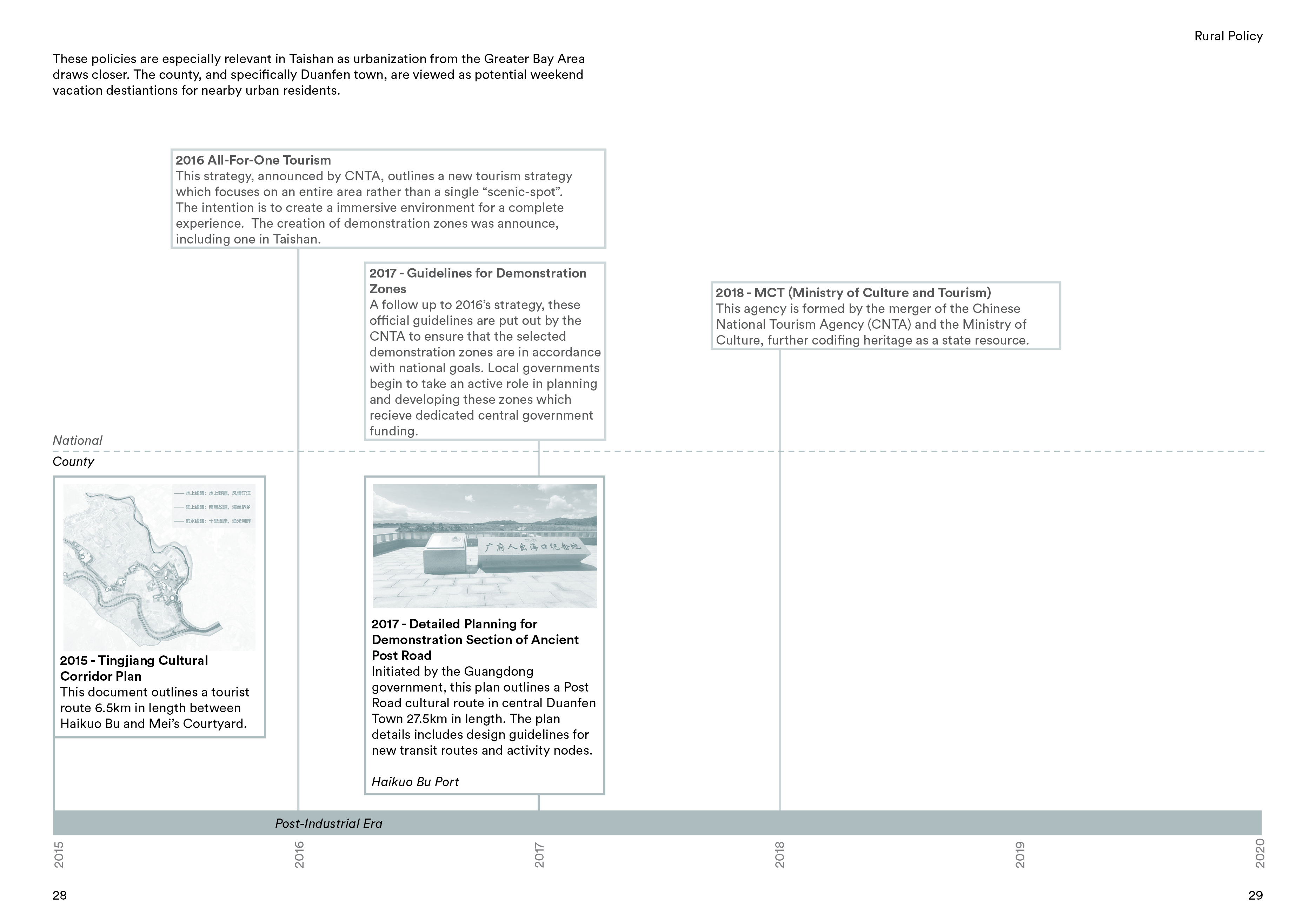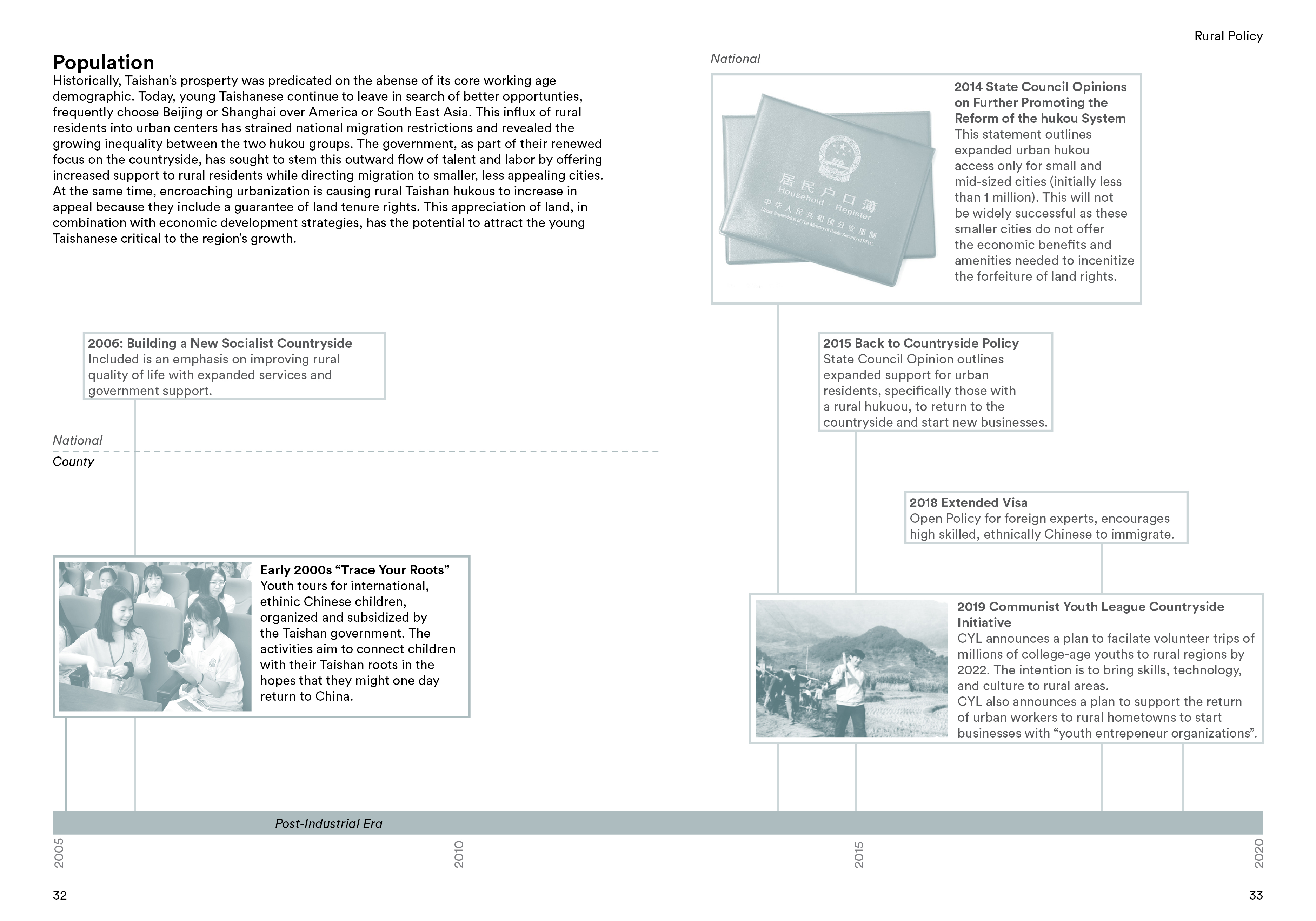农村政策
While national and international policy has long shaped Taishan, during its early development the county maintained strong autonomy, operating under its own form of social governance. It was not until the post-reform era that top-down policy began to affect local action. This shift is marked most clearly by the 2006 policy, “Building a New Socialist Countryside” which sought to extend the project of modernization beyond urban centers and reduce urban-rural inequalities. Since 2006, ambitious and increasingly specific policies are targeting four key areas - heritage, tourism, land use, and population. An overarching theme is an emphasis on the tertiary economic sector, specifically the domestic tourism industry. The county is now poised to leverage its location and resources to catalyze a second era of prosperity.
虽然国家政策和国际政策长期以来影响着台山,但在其早期发展过程中,台山县保持着强大的地方自治,形成了独特的社会治理形式。直到改革后时代,自上而下的政策才开始影响台山的地方权力。这一转变最明显的标志是2006年中央政府提出得“建设社会主义新农村”政策,该政策提出全面开展现代化农村,进而削弱城乡不平等。 自2006年以来,该政策针对四个关键领域:文化遗产、旅游、土地改革和农村人口,提出了一系列具体的目标和策略。该政策的主旨是提升农村经济,其中一主要抓手是旅游业。借着这些政策的东风,台山历史悠久的文化传承和优良生态赋予了其了进入第二个繁荣时代的好基础。




